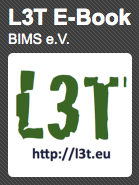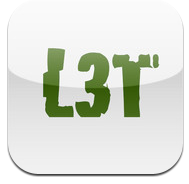Our article on „The Integration of Aspects of Geo-Tagging and Microblogging in m-Learning“ is now published in the book „Media in the Ubiquitous Era: Ambient, Social and Gaming Media„. A draft version of the article is online available:
Abtract:
The recent years have shown the remarkable potential use of Web 2.0 technologies in education, especially within the context of informallearning. The use of Wikis for collaborative work is one example for the application of this theory. Further, the support of learning in fieldsof education, which are strongly based on location-dependent information, may also benefit from Web 2.0 techniques, such as Geo-Tagging and m-Learning, allowing in turn learning in-the-field. This chapter presents first developments on the combination of these threeconcepts into a geospatial Wiki for higher education, TUGeoWiki. Our solution proposal supports mobile scenarios where textual data andimages are managed and retrieved in-the-field
as well as some desktop scenarios in the context of collaborative e-Learning . Within this scope, technical restrictions might arise while adding and updating textual data via the collaborative interface, and this can be cumbersomein mobile scenarios. To solve this bottleneck, we integrated another popular Web 2.0 technique into our solution approach, Microblogging.Thus, the information pushed via short messages from mobile clients or microblogging tools to our m-Learning environment enables thecreation of Wiki-Micropages as basis for subsequent collaborative learning scenarios.
Reference: Safran, C., Garcia-Barrios, V. M., & Ebner, M. (2012). The Integration of Aspects of Geo-Tagging and Microblogging in m-Learning. In Lugmayr, A., Franssila, H., Näränen, P., Sotamaa, O., Vanhala, J., & Yu, Z. (Eds.), Media in the Ubiquitous Era: Ambient, Social and Gaming Media. (pp. 95-110). doi:10.4018/978-1-60960-774-6.ch005




